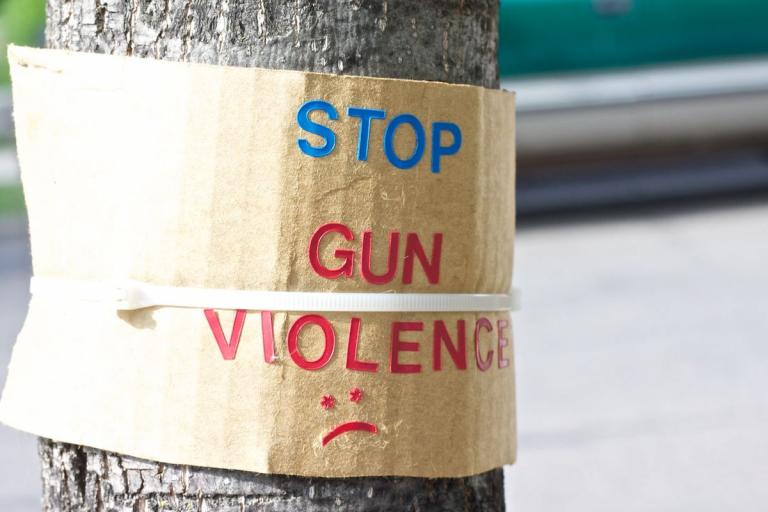
The recent mass shootings in El Paso, Texas and Dayton, Ohio and knife attacks in Southern California symbolize in extremely violent terms an underlying pattern of hostility in American life. There is some comfort in knowing that such hostility is not the only pattern. Heroism and compassionate care for others were also on display, as several news outlets pointed out (Refer here, here, here and here, for example). Such acts of heroism inspire many of us not to give in to disillusionment, despair, and paralysis. However, we need to consider proactive means of doing whatever possible to limit and reduce in dramatic terms such heinous and dramatic acts of hostility in our society. We need to deescalate hostility and enhance empathy while also expanding solutions so that this extreme pattern of violence does not become the dominant and singular narrative of our society. So, what can be done?
Certainly, prayers for spiritual revival are important. This past Sunday, many churches across the nation invested time to pray corporately in the wake of these tragedies. But while vitally important, prayer for spiritual revival is not alone sufficient. Prayer must give rise to concrete steps for putting an end to violence. We must take other forms of action in addition to prayer to extinguish hostility.
John Fea addresses the responses of various “conservative pundits” in diagnosing the problems and offering prescriptions for addressing the mass shootings in El Paso and Dayton, including their calls for prayer and revival:
Future historians will inevitably see the rise of violent video games, toxic social media, unprecedented access to unhealthy material online and intense political partisanship as part of the context necessary for an accurate interpretation of these mass shootings.
But the same historians will also note the ugly renewal of white supremacy, nativism and racism. They will write about the destructive presidency of Donald Trump. And they will note the power of the NRA. We rarely hear conservative Christians talk about these details today.
Yes, Christians have a responsibility to pray for those suffering in the wake of these horrendous shootings in El Paso and Dayton. But appeals to thoughts, prayers and spiritual renewal can serve as an excuse for not doing anything practical about the gun problem that we face in America.
Again, prayer is vitally important. Conservative and liberal religious groups alike recognize the need for prayer. Prayer certainly plays a key role as a part of the solution. One of the traits of those who pray fervently, righteously and effectually is humility before God and others. Remember how Jesus rebuked self-righteousness in his parable affirming the repentant publican over against the self-confident pharisee both of whom went up to the temple to pray (Luke 18:9-14). Those who pray in humility like the repentant publican safeguard against hostility and love their ideological enemies, praying God’s blessings on them (Matthew 5:43-48). They guard against confirmation bias and are open to new perspectives in providing expansive solutions to curing the nation of such epidemics as gun violence. They realize we must pray for revival in a spirit of collective repentance to address problems in concrete ways together.
With this point on effectual and humble prayer in mind, conservatives and liberals offer helpful correctives to addressing gun violence in our society. Conservatives are correct about the need to address the rise in violent video games and disturbing online material. Liberals are correct about the need to address white supremacy, nativism, racism, and access to assault weapons. In their own ways, conservatives and liberals speak about the need to address mental illness in the gun crisis as well as concerns over poisonous partisanship that is so harmful to the political process.
The social psychologist Jonathan Haidt provides insights into the moral foundations that shape individuals from across the ideological spectrum. He maintains that conservatives and liberals both struggle with self-righteousness and fail to see their own ideological limitations. Haidt also argues that conservatives and liberals have something to offer on how to address deeply troubling social issues in our society. He calls on us to cultivate empathy for those of various perspectives in addressing such social concerns (Refer here and here).
Only as we learn to work together prayerfully, humbly and proactively from across the ideological and political spectrum will we find far-reaching and long-standing solutions to the current crisis. Rather than bury one another’s perspectives, we should enhance empathy for the vantage points noted above in seeking to deescalate the hostility that manifests itself increasingly in mass violence. Both sides have something to offer. Neither side provides comprehensive solutions.
Let us stop shooting down one another’s approaches to engaging such heinous problems as gun violence. Let us cease and desist on fostering a zero-sum society so that we can bring mass shootings across the land to zero. We must work together with a sense of extreme urgency to engage such problems as gun violence. Let us foster more comprehensive and expansive solutions that account for various dimensions of our shared social life, noting that we are all in this together. After all, mass violence is often no respecter of its victim’s ideological persuasion.












